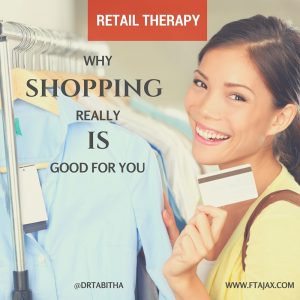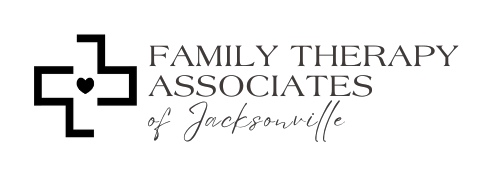 Remember that saying, “When the going gets tough, the tough go shopping?” It turns out that there is some truth to that adage! More than half of Americans admit engaging in “retail therapy.”
Remember that saying, “When the going gets tough, the tough go shopping?” It turns out that there is some truth to that adage! More than half of Americans admit engaging in “retail therapy.”Why do people use retail therapy?
Can window shopping do the trick?
Should we save retail therapy as a reward instead of buying on impulse?
Yes! Research suggests that retail therapy generally works better when used strategically, rather than impulsively. Interestingly, there are few, if any, negative emotional side effects. However, most people do it more as a mood booster than a way to celebrate. One study found that 62% of shoppers had purchased something to cheer themselves up. The same study identified another 28% made purchases as a form of celebration.
Should retail therapy be pursued with caution? Because, like a lot of other things, it could become a compulsion.
If shopping is the only way you can make yourself feel better, you regret what you buy, or you have credit card debt, retail therapy isn’t for you. Retail therapy should not be your only way of coping – and certainly not your primary way of coping with a bad mood. In these cases, it’s important to find other healthy and less expensive options to cope with not feeling good.
If you are struggling to cope with problems in your life and are resorting to using any coping mechanism to its extreme (e.g., shopping well beyond your means, excessive drinking, spending exorbitant amounts of money, or sleeping to avoid problems), we encourage you to consider therapy. If you are ready to schedule an appointment, read about our therapists or call us today and we can help you find the perfect fit.

